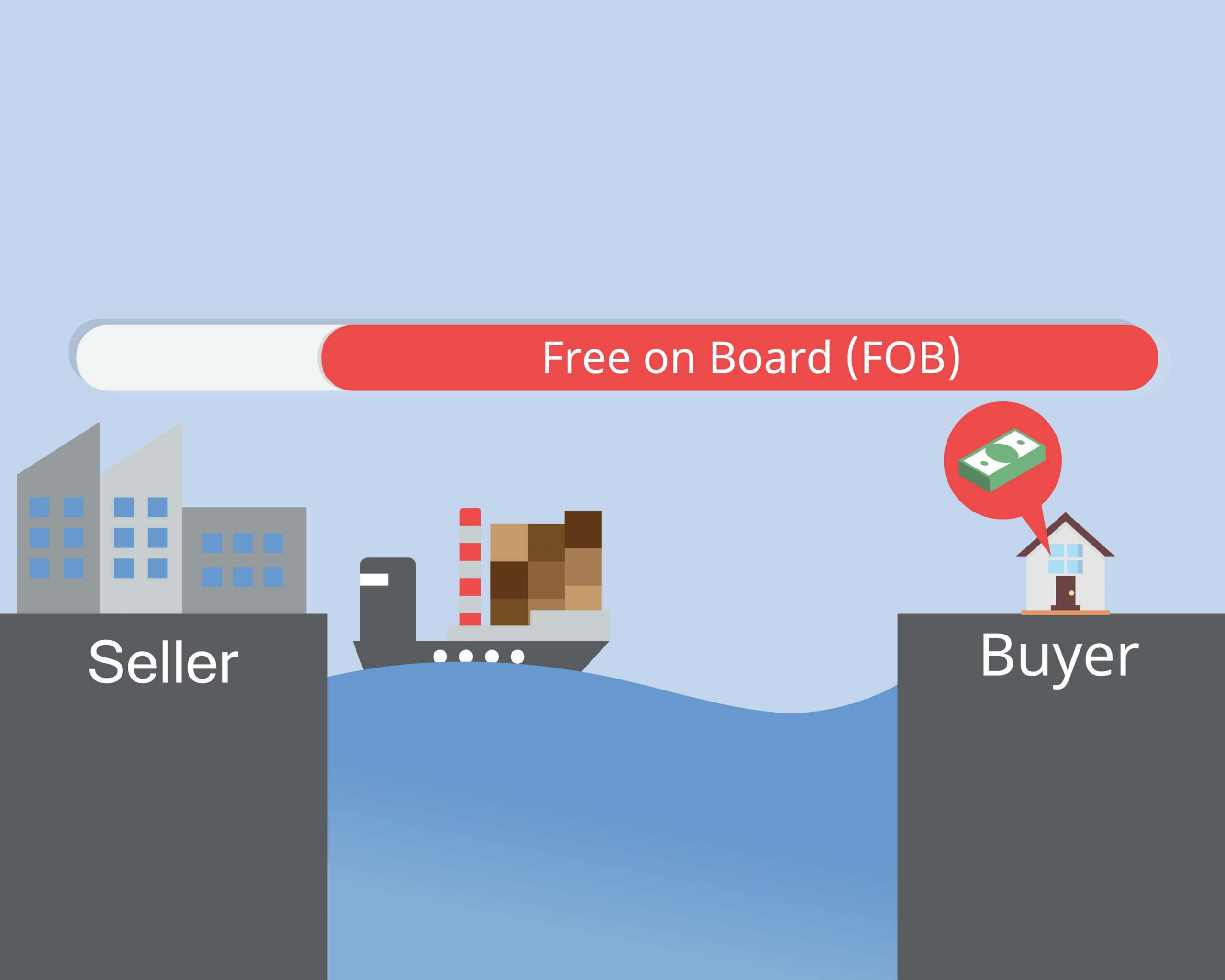Who is Responsible When Damage Occurs to Goods During International Shipping? Important Information to Know Before Contracts
International Trade Terms "Incoterms" are a set of standardized terms and conditions used to determine the responsibilities and obligations between the buyer and seller in international shipping operations.
However, it should be noted that the details and application of these agreements can vary according to the contracts and agreements specified between the relevant parties in each business transaction.
When damage occurs to goods during the shipping process, responsibility typically depends on the terms specified in the used trade terms agreement.
1-FOB (Free On Board)
The buyer is responsible for costs and risks after the goods are loaded onto the ship at the specified port. Therefore, if the goods are damaged after this point, the buyer bears responsibility.

Example: If a sales contract uses FOB terms and states "FOB New York Port," this means the seller is responsible for delivering the goods on board a ship at the New York Port, and the buyer becomes responsible for the goods after they are loaded onto the ship.
2-FCA (Free Carrier Acceptance)
The supplier is responsible for delivering the goods ready for shipment at the specified location. The buyer should load and transport the goods themselves, so responsibility for damage may be shared between the buyer and the supplier, as per the specified agreement.
Example: If there's a sales contract using FCA terms and it states "FCA," this means the seller in Istanbul is obligated to deliver the goods at their warehouse. Once delivered at the warehouse in Istanbul, the buyer in Dubai becomes responsible for the goods and the costs associated with their transport, insurance, and related risks.
3-EXW(Ex Works)
EXW is an abbreviation for "Ex Works" in international shipping terms. It means the buyer is responsible for obtaining the goods from their place of manufacture and bears the costs of transportation and taxes. Sales under EXW terms specify the place of delivery as the seller's factory, and the buyer is responsible for shipping.
Example: If there's a sales contract using EXW terms and it states "EXW," this means the buyer in Dubai is the one who will handle all aspects of shipping, costs, and risks after the goods are delivered at the seller's factory in Istanbul.
4-CPT (Carriage Paid To)
In international shipping terms, it refers to the seller being responsible for shipping costs and delivering the goods to a specified destination (usually a port or specific arrival location). This means the buyer does not bear shipping costs until the goods arrive at the specified location.
Example: Let's assume there's a trade deal between a company in Dubai (the buyer) and a company in Istanbul (the seller). They agreed to CPT terms in the sales contract. The company in Istanbul (the seller) will bear the shipping and transportation costs for the products from their warehouse in Istanbul to the port in Istanbul. Once the products arrive at the port, they are considered delivered to the company in Dubai (the buyer), and from there, the buyer takes on the subsequent transportation costs from the port in Istanbul to their warehouse in Dubai.
5-CIF (Cost, Insurance, and Freight)
CIF is a term in international trade used to determine who bears the cost of shipping and insurance when transporting goods from the seller to the buyer. Simply put, when CIF shipping terms are agreed upon, it means the seller is responsible for the cost of transporting the goods to the specified port and insuring them during transport, then delivering them to the buyer at the intended port.
Example: If there's a sales contract using CIF terms, and it states "CIF Istanbul Port," this means the seller in Istanbul is obligated to bear the cost of transporting the goods to Istanbul Port and insuring them during transport. Once the goods arrive at Istanbul Port, the buyer in Dubai becomes responsible for the goods and the transportation costs, as well as the associated risks from that point onwards.
In conclusion, International Trade Terms "Incoterms" provide a standardized framework for regulating cross-border business operations. These terms provide clear clarification of responsibilities and obligations between the seller and buyer regarding international shipping operations.
Responsibility for damage and risks depends on the terms specified in the trade terms agreement used in each transaction. Whether it's FOB, FCA, EXW, CPT, or CIF, it's essential for the parties involved to adhere to the terms and obligations outlined.
Through cooperation and a good understanding of these terms, companies and individuals can facilitate international shipping operations and reduce ambiguities and disputes. To avoid any unwanted surprises, it's always advisable to research and consult before entering into contracts and commit to specific terms in international shipping operations.
